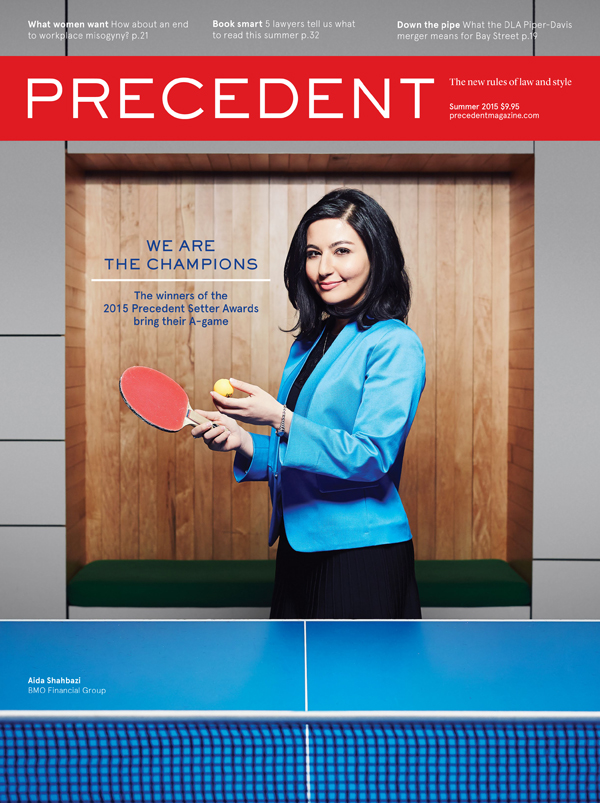You’re sitting in a morning strategy meeting on a big file, and the partner asks your colleague whether she’s getting enough sleep. She replies that she just isn’t wearing mascara that day. An awkward silence follows.
You and your mentee are admiring a senior partner who excels at work, raised a family and participates in the community. Your mentee asks how she could possibly do it all. You talk about long days and superhuman energy. Neither of you ask the same question about male senior partners with children.
You’re speculating with your group about who will make partner next. There’s a wealth of talented young women in the pool, but nobody is sure which of them will choose to start a family, or when. This is an accepted factor in the guessing game.
Sound familiar? I have participated in all of these discussions; I’ve even instigated some of the comments. I meant well. I hadn’t set out to contradict my feminist values. And yet I contributed to the harmful stereotypes that women still face in this profession. And even when I didn’t instigate the conversation, I let it happen without interjecting. I was a bystander.
On the national stage, there are success stories, like the lauding of Lerners LLP as one of the first Canadian firms to achieve gender parity. Yet numerous trending hashtags — #VAW, #BeenRapedNeverReported, #ICanNeverBeAJudge, #EverydaySexism, #SuitablyDressed, to name a few — remind us that women are still silenced, discounted and marginalized because their sex and sexuality can be used against them. They remind us of the discrimination women face regardless of their intelligence, education, economic status or work ethic.
But how do these stories, and the problems they expose, affect our everyday practice? Women continue to excel as lawyers and judges. Law societies have been working for years on retaining women in private practice. Law firms, private companies and governments have discrimination and harassment policies. What more can we possibly do?
Our profession needs to revisit its moral imperative to address “small” injustices: everyday sexism, offhand misogyny, casual hints of violence against women.
Lawyers don’t need convincing of this moral imperative. But we’re Type As — we need a plan of action. A closing agenda. A precedent. And lucky for us, there are many precedents. Here is just one.
Toronto’s most prominent LGBTQ organizations have adopted the international Hear It! Stop It! #NoBystanders campaign. It is not a campaign about large-scale law reform, about revolution, about punishing all perpetrators. Rather, it is a campaign that asks us to practice the following credo in the fight for human rights and equality: “I will never be a bystander to homophobic or transphobic language. If I hear it, I will stop it.”
Lawyers can borrow this simple strategy in the effort to treat all our colleagues equally and respectfully. It starts in your office and it starts today. It starts like this:
- If you hear comments about a colleague’s appearance, challenge the acceptability of those remarks.
- If you hear concerns about a woman’s ability to manage her files, get back up to speed or make partner after she’s had a child, ask questions about the basis for those views.
- If you hear rumours about a lawyer’s sexual activity, do what you do best: object on the basis of relevance.
It is not about speaking for women, or being “strong” when the immediate victims choose not to speak out. It’s about speaking up for yourself, and your values of equality. And it’s about listening, educating yourself, engaging others and promoting accountability. It is not about single-handedly ending all violence and discrimination against all women; there is no one prescription for such complex issues. It’s about changing the conversation. No bystanders.

 This story is from our Summer 2015 issue.
This story is from our Summer 2015 issue.
 Molly Reynolds is a litigation associate at Torys LLP in Toronto. She’s also the editor of the Ontario Bar Association’s civil litigation newsletter.
Molly Reynolds is a litigation associate at Torys LLP in Toronto. She’s also the editor of the Ontario Bar Association’s civil litigation newsletter.
Illustration by Sébastien Thibault


